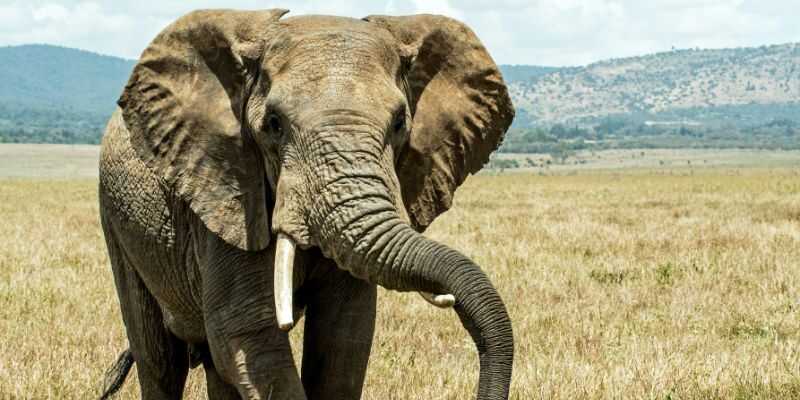

Hunting Elephants is one of Africa’s greatest dangerous game hunting adventures, which will test your endurance, staying power, and patience. An Elephant hunt can be frustrating, and after walking miles on the African soil in tough conditions, it is exhausting!
But when your trophy Elephant is down, there is no greater euphoric rush that you can experience on a big game hunt.
Man has been conducting Elephant hunts for more than a million years, first for their protein, and then later by trophy hunters and traders for their ivory. An Elephant hunt is a challenge for hunters stalking Africa’s largest mammal, and these Elephant hunts provide much-needed financial resources to African countries, bringing value to the Elephant.
In the central and northern regions of Africa, Elephant populations have been reduced due to poaching and loss of habitat, which then has a knock-on effect by resulting in conflict between man and Elephant, as can be seen in countries such as Botswana and Zimbabwe.
In many southern African countries, Elephant populations are stable or growing due to successful conservation initiatives. Elephant hunting in modern-day Africa is limited to a handful of countries, including South Africa, Zambia, Mozambique, Cameroon, Tanzania, Zimbabwe, Namibia, Botswana, and the Republic of Congo.
Elephant hunts can be split into exportable trophy hunts or non-exportable (own use/community) hunts. Tuskless Elephant hunts are becoming popular in Zimbabwe, due to the affordability of the hunt and the sheer number of tuskless cows.
Hunting an Elephant bull is considered to be the pinnacle of a big game hunter’s career, especially harvesting a bull over 70 pounds, with over 100 pounds being the magic number.
Elephant hunts are usually conducted on 14-, 16-, or 21-day dangerous game hunting safaris.
The starting point before embarking on an Elephant hunting safari would be determining the type of hunt and quantifying the end goal, i.e., trophy, non-trophy, or tuskless.
Namibia offers Elephants in the Zambezi (formerly known as the Caprivi Region), with big bulls being hunted in Bushmanland. Zimbabwe produces exceptional bulls in areas such as Matetsi, Zambezi Valley, Gona Ezhou, and Save Valley Conservancy.
In Mozambique, Niassa in the north is very popular. Luangwa and the Zambezi Valley in Zambia are known for consistently producing bulls over 65 pounds.
In Tanzania, the Ruaha Valley and Selous Reserve are popular hunting blocks, with Botswana having no shortage of Elephants in the Chobe Region, Okavango Delta, and Tuli Block. Forest Elephants are hunted in Cameroon and the Republic of Congo. In South Africa, Elephant hunts take place in Limpopo, Mpumalanga, and KwaZulu-Natal provinces.
The African Savanna Elephant is found in the majority of African countries, with the Forest Elephant being found in the equatorial forest belt of West Central Africa.
Elephant hunts are best conducted during the dry season. Elephants need plenty of water and, as such, drink regularly. Besides water, an adult Elephant requires more than 300 pounds of vegetation daily, which means that large distances need to be covered by the Elephants each day.
With the Elephant continually on the move, this allows hunters a better chance of cutting fresh tracks. In areas where vegetation is abundant, such as reeds in the Zambezi of Namibia, Elephant populations are high, and there is no specific “best” Elephant hunting season; there are just so many Elephants.
Countries such as Namibia, South Africa, and Mozambique hunt for most of the year, but destinations such as Tanzania, Zambia, Cameroon, and the Republic of Congo have shorter elephant hunting seasons.
Out of all the African hunts, hunting a trophy Elephant is probably the toughest. Traditionally, hunting an Elephant involves cutting fresh tracks, then setting out on foot, aiming to catch up to the Elephant and get a glimpse of the ivory, which is the goal.
In many instances, the ivory may turn out to be sub-standard, worn down, or broken, which can be gut-wrenching after having walked long distances in hot, dusty, and dry conditions.
The challenge on an Elephant hunt is to overcome the Elephant's keen sense of smell and hearing by continually monitoring the wind direction. Elephant hunts can be humbling and will test your abilities to the maximum. The element of danger is an attraction, where the hunter may become the hunted. There is nothing quite like facing an Elephant bull head-on at 20 yards.
A standard Elephant hunting safari will include the basic service offerings such as accommodation, meals, drinks, professional hunter, camp staff, trackers, on-territory transport, and field preparation of the Elephant trophy.
Exclusions and optional extras when booking an Elephant hunt in Africa:
Whether it’s finding leopard hunts, stalking, or walking and stalking at dawn, we’re here to deliver the experience of a lifetime with integrity and precision.
✉️ Contact us today to speak with an expert and plan your tailored elephant hunting adventure.
🌍 Browse our active hunting listings and secure your preferred species and dates.
Search from our range of Hunts across various popular destinations in Africa.
Find A Hunt